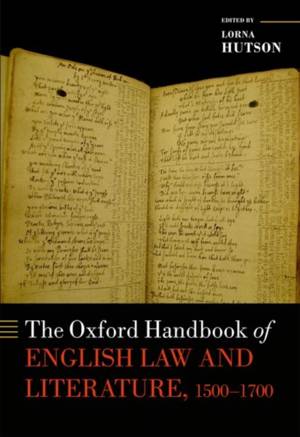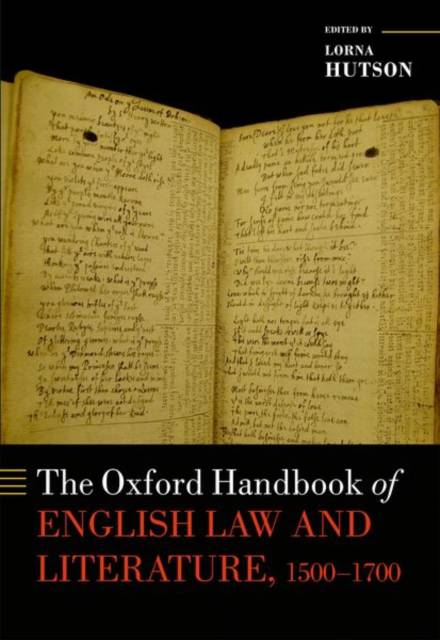
Je cadeautjes zeker op tijd in huis hebben voor de feestdagen? Kom langs in onze winkels en vind het perfecte geschenk!
- Afhalen na 1 uur in een winkel met voorraad
- Gratis thuislevering in België vanaf € 30
- Ruim aanbod met 7 miljoen producten
Je cadeautjes zeker op tijd in huis hebben voor de feestdagen? Kom langs in onze winkels en vind het perfecte geschenk!
- Afhalen na 1 uur in een winkel met voorraad
- Gratis thuislevering in België vanaf € 30
- Ruim aanbod met 7 miljoen producten
Zoeken
Omschrijving
This Handbook triangulates the disciplines of history, legal history, and literature to produce a new, interdisciplinary framework for the study of early modern England. For historians of early modern England, turning to legal archives and learning more about legal procedure has seemed
increasingly relevant to the project of understanding familial and social relations as well as political institutions, state formation, and economic change. Literary scholars and intellectual historians have also shown how classical forensic rhetoric formed the basis both of the humanist teaching of
literary composition (poetry and drama) and of new legal epistemologies of fact-finding and evidence evaluation. In addition, the post-Reformation jurisdictional dominance of the common law produced new ways of drawing the boundaries between private conscience and public accountability. This
Handbook brings historians, literary scholars, and legal historians together to build on and challenge these and similar lines of inquiry. Chapters in the Handbook consider the following topics in a variety of combinations: forensic rhetoric, poetics and evidence; humanist and legal learning;
political and professional identities at the Inns of Court; poetry, drama, and visual culture; local governance and legal reform; equity, conscience, and religious law; legal transformations of social and affective relations (property, marriage, witchcraft, contract, corporate personhood); authorial
liability (libel, censorship, press regulation); rhetorics of liberty, slavery, torture, and due process; nation, sovereignty, and international law (the British archipelago, colonialism, empire).
increasingly relevant to the project of understanding familial and social relations as well as political institutions, state formation, and economic change. Literary scholars and intellectual historians have also shown how classical forensic rhetoric formed the basis both of the humanist teaching of
literary composition (poetry and drama) and of new legal epistemologies of fact-finding and evidence evaluation. In addition, the post-Reformation jurisdictional dominance of the common law produced new ways of drawing the boundaries between private conscience and public accountability. This
Handbook brings historians, literary scholars, and legal historians together to build on and challenge these and similar lines of inquiry. Chapters in the Handbook consider the following topics in a variety of combinations: forensic rhetoric, poetics and evidence; humanist and legal learning;
political and professional identities at the Inns of Court; poetry, drama, and visual culture; local governance and legal reform; equity, conscience, and religious law; legal transformations of social and affective relations (property, marriage, witchcraft, contract, corporate personhood); authorial
liability (libel, censorship, press regulation); rhetorics of liberty, slavery, torture, and due process; nation, sovereignty, and international law (the British archipelago, colonialism, empire).
Specificaties
Betrokkenen
- Auteur(s):
- Uitgeverij:
Inhoud
- Aantal bladzijden:
- 826
- Taal:
- Engels
- Reeks:
Eigenschappen
- Productcode (EAN):
- 9780199660889
- Verschijningsdatum:
- 22/08/2017
- Uitvoering:
- Hardcover
- Formaat:
- Genaaid
- Afmetingen:
- 175 mm x 249 mm
- Gewicht:
- 1587 g

Alleen bij Standaard Boekhandel
+ 676 punten op je klantenkaart van Standaard Boekhandel
Beoordelingen
We publiceren alleen reviews die voldoen aan de voorwaarden voor reviews. Bekijk onze voorwaarden voor reviews.









